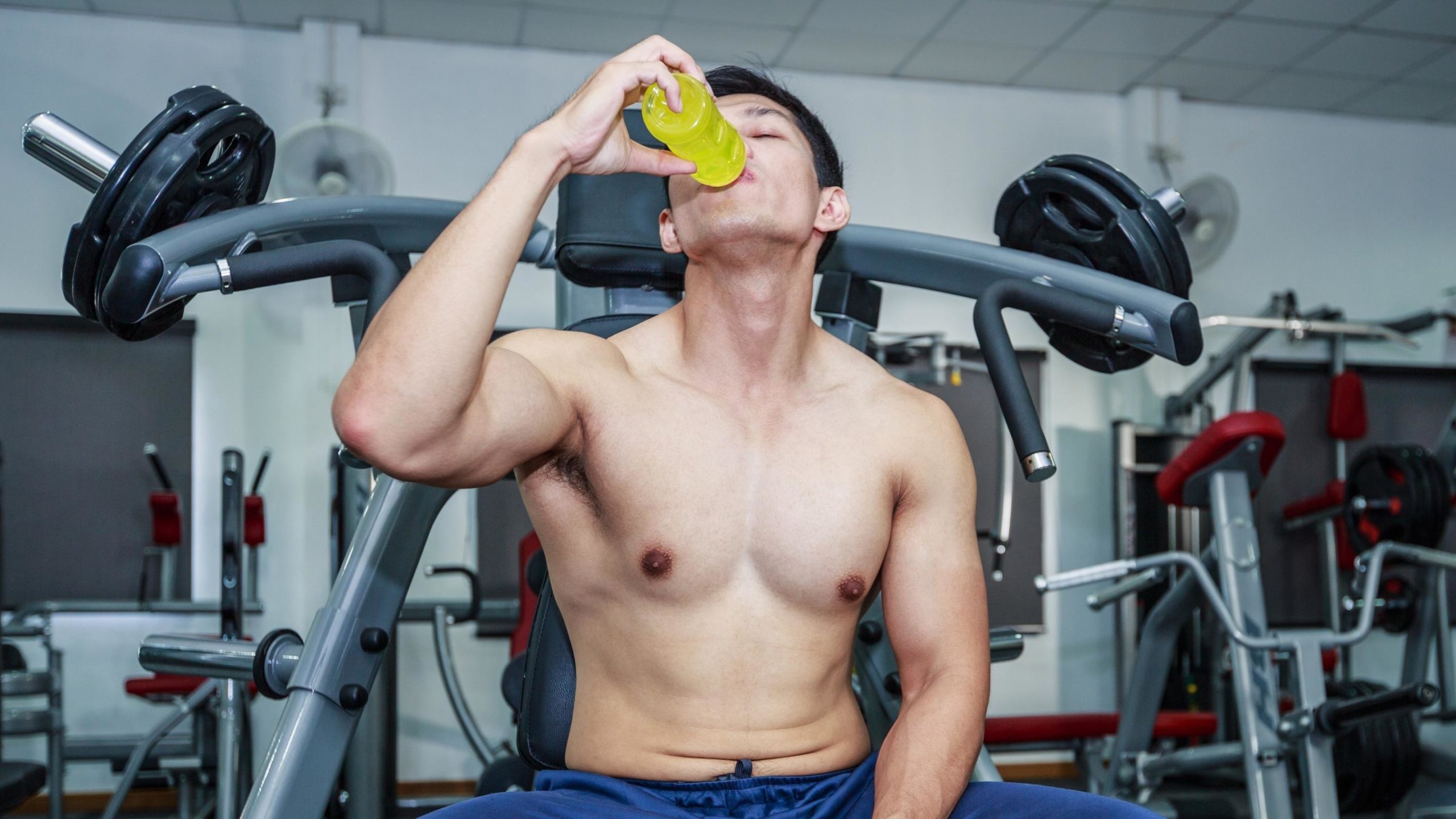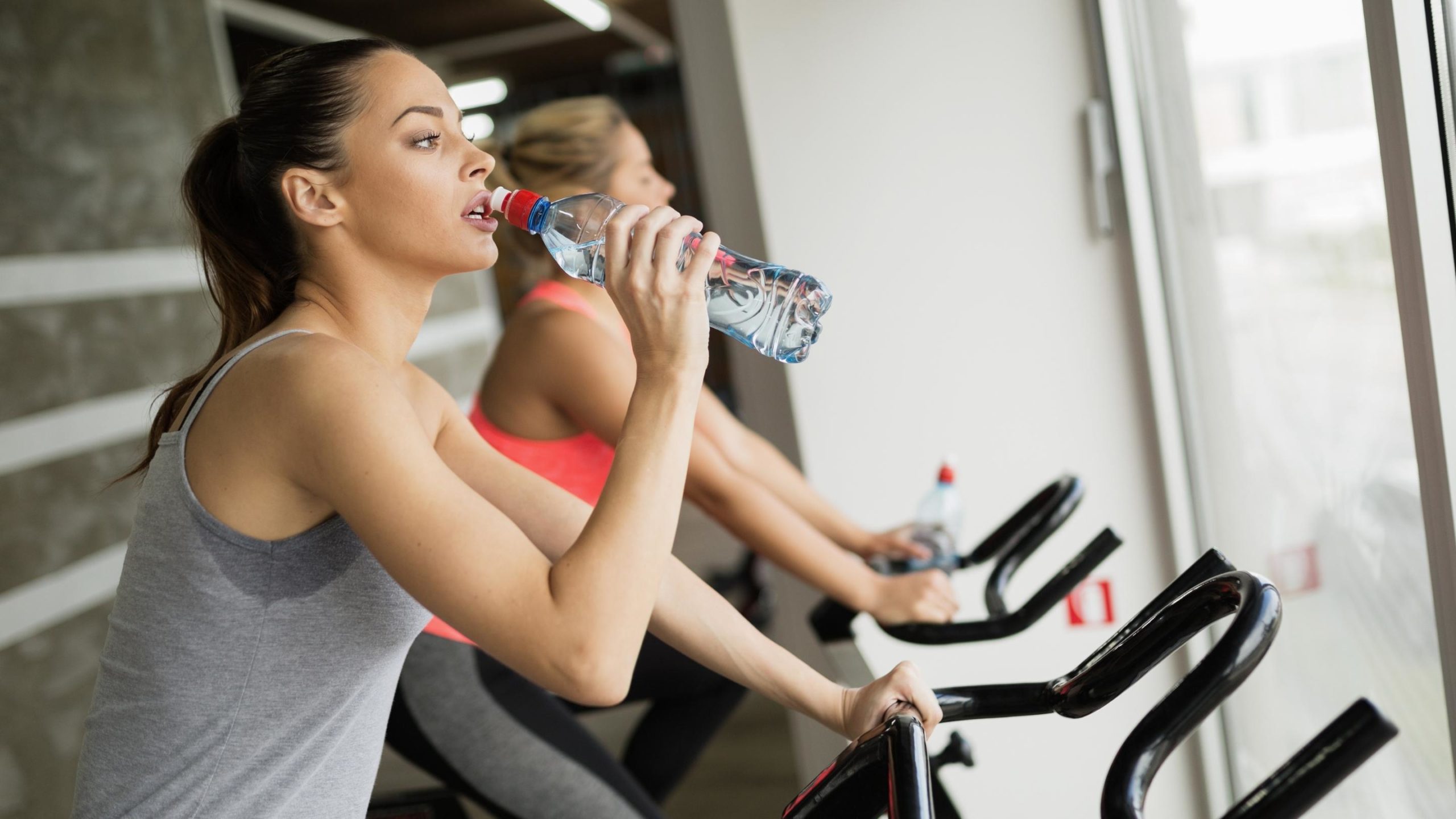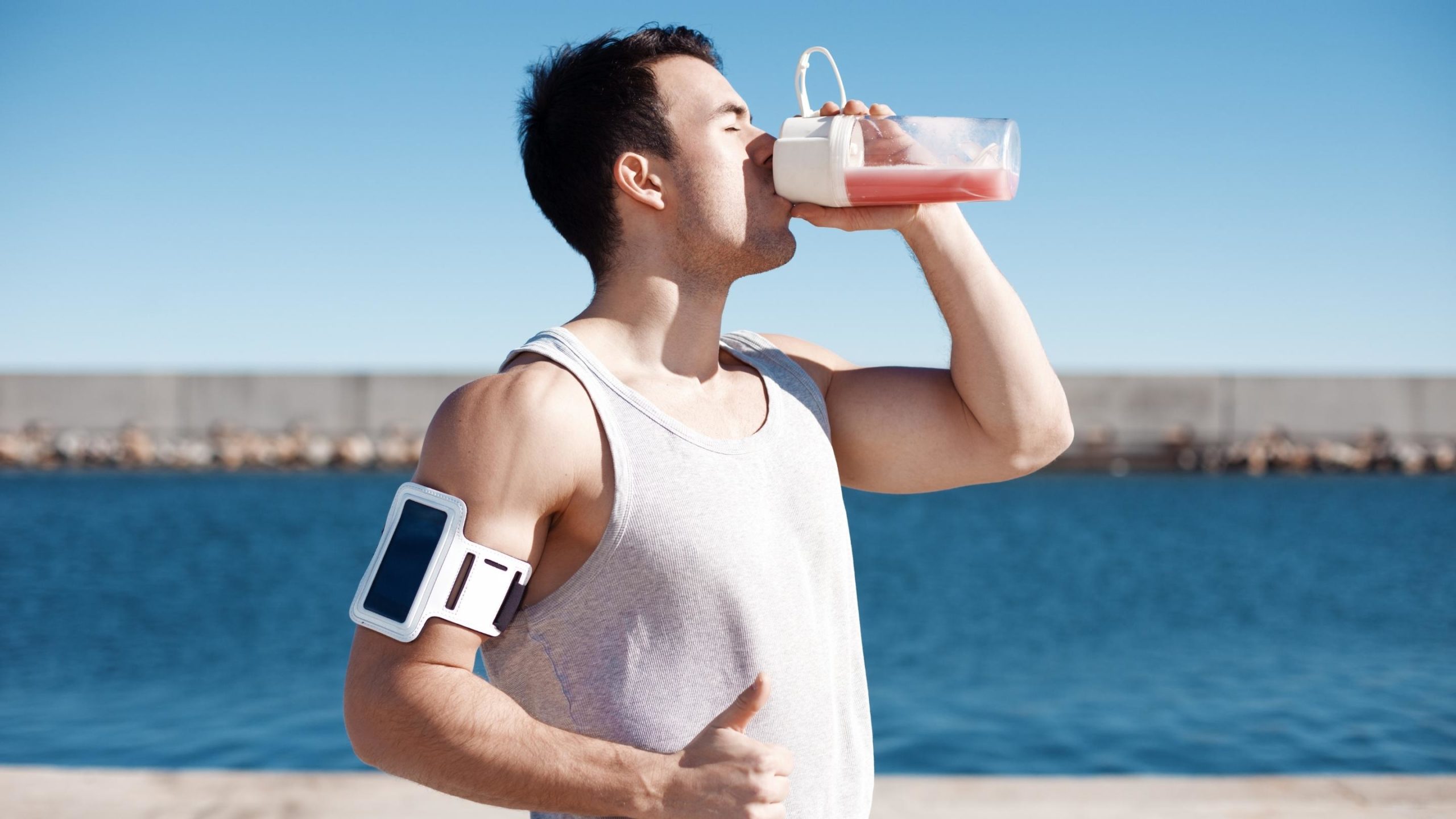Practitioners of sports medicine strongly recommend that endurance athletes be properly hydrated before, during and after intense workouts and competitions with a combination of a healthy diet of electrolyte-rich foods and electrolyte drinks.
The main reason: Electrolytes increase muscle hydration and endurance!
Key Point: Proper electrolyte balance is key to keeping your muscles hydrated throughout grueling exercise routines, and is directly linked to improved endurance.
Table of Contents
- What Are Electrolytes and Why Are They Important?
- Signs of Electrolyte Imbalance
- Why Is Muscular Hydration Important to Athletes?
- How Does Muscular Hydration Work?
- How Do Electrolytes Improve Muscular Hydration?
- Why Is Muscular Endurance Important to Athletes?
What Are Electrolytes and Why Are They Important?
Electrolytes are minerals with an electric charge, either positive or negative, when dissolved in fluids like water. Since the human body has 60% in its cells, electrolytes are present in nearly every cell!
These are known as essential minerals because of their crucial importance in multiple bodily functions including:
- Muscle function, ensuring that muscles contract healthy including the heart muscles
- Nervous system function including cognitive function
- Fluid balance in the blood, plasma and other cells
- Blood volume, blood pressure and blood clotting
- Bowel movements
For these reasons, electrolytes are highly important for endurance runners who are at a high risk of dehydration and electrolyte imbalance.
Electrolyte levels are also measured to diagnose underlying medical conditions caused by injuries and illnesses.
Key Point: Electrolytes play a vital role in countless bodily functions and are measured to diagnose underlying health problems like illness and injury.
Signs of Electrolyte Imbalance
Healthy men and women usually have good electrolyte balance through a combination of a healthy diet, moderate exercise and quality sleep.
But athletes have a higher risk of electrolyte imbalance due to excessive sweat loss, typically through an intense workout combined with insufficient hydration. Electrolytes are lost in the sweat and urine excreted during the intense workout.
With low electrolyte levels, athletes can suffer from these symptoms:
- Decreased cognitive function with dry eyes, headaches and dizziness
- Reduced exercise performance due to significant fluid loss (e.g., excessive amounts of sweat) and, thus, premature fatigue and decreased focus
- Weakened immunity, particularly with high levels of sodium and potassium loss (These electrolytes are critical in immune system signaling against disease-causing pathogens)
- Unstable blood sugar and fluid balance levels that affect athletic performance
Increased levels of stress and anxiety since electrolytes play crucial roles in managing stressors - Decreased quality of sleep resulting in feelings of fatigue and loss of concentration during the daytime
The Bottom Line: Endurance athletes should monitor their electrolyte intake every day, but particularly during their intense workouts, training sessions, and competitions, to prevent the above symptoms!

Why Is Muscular Hydration Important to Athletes?
Muscular hydration refers to the pressure that pulls fluid from external sources into dry tissues that, such as muscle tissue. In turn, this restores and maintains fluid balance which improves muscle function by improving flexibility.
Both physically active individuals and endurance athletes can suffer from the adverse effects of insufficient muscular hydration. With intense endurance and strength training, more sweat is produced by the body resulting in the loss of significant amounts of electrolytes.
The less hydration the muscles have, the more severe the symptoms of muscular dehydration can be including:
- Muscle soreness and tenderness
- Muscle spasms, cramps and involuntary contractions
- Restricted movement
- Lightheadedness
- Feelings of fatigue
- Pain in the joints
- Increased risk of injuries
The Bottom Line: Muscle hydration is important, because muscle tissue contains more water than you might think. Muscles are composed of 70-80% water! To maintain fluid balance in the muscles and ensure optimal muscle function, proper hydration must be maintained.
How Does Muscular Hydration Work?
More fluid intake doesn’t necessarily mean optimum levels of muscle hydration! Think of your muscles as soil. When soil is dry, it’s hard and rigid. But flooding it with water won’t make it softer and more pliable since the water stays on the surface.
This is the same with muscles – fluid intake doesn’t reach the cells in the muscles when these are dry and the above symptoms can happen. The lost fluids due to more sweat being produced during endurance and strength training sessions should be replenished before, during and after these sessions for optimum muscular hydration.
Take note, too, that athletic performance will decrease even before you feel thirsty!
By then, you have lost 2% of your body weight and your fatigue perception has increased and your muscular strength has declined.
Bottom Line: For these reasons, endurance athletes must be acutely conscious about their hydration status, especially if they produce more sweat than the average athlete.
Benefits of Muscle Hydration
Sufficient muscular hydration is also crucial in other aspects of athletic performance including:
- Improved muscle growth and tone
- Faster fat loss since increased fluid intake decreases hunger pangs and cravings, not to mention that increased urine excretion means improved thermogenesis (i.e., burning of fat)
- Less fluid retention (i.e., Your body retains more sodium when dehydrated resulting in fluid retention. Sufficient fluid intake not only improves sodium balance but prevent dehydration)
- Better post workout recovery since the muscles have sufficient fluids and nutrients including electrolyte that aid in muscle repair and replacement
The bottom line: Stay hydrated because your muscles will need sufficient fluid intake for optimal athletic performance as well as other benefits!
How Do Electrolytes Improve Muscular Hydration?
Each of the important electrolytes for muscular hydration should be taken in the right quantities before, during and after intense exercise including strength training. Endurance athletes, such as Ironman triathletes, usually work with sports medicine practitioners to achieve ideal electrolyte balance.
Consider how each electrolyte impacts athletic performance and endurance. The essential electrolytes and their roles in muscular hydration are as follows:
Sodium
Table salt is a common source for sodium but it can also be sourced from salty foods, such as pretzels, when more sweat is produced. Getting enough sodium is crucial because the electrolyte:
- Maintains fluid balance
- Prevents muscle cramps and enables efficient muscle contraction
- Maintains normal blood pressure
- Enables the transmission of nerve impulses
- Stimulates the thirst response
Potassium
Sourced primarily from green leafy vegetables, nuts and dairy foods, potassium is an electrolyte that contributes to muscular hydration by:
- Maintaining fluid balance
- Stimulating protein and carbohydrate metabolism
- Aiding the muscles in the efficient use of glycogen, their main energy source
- Preventing muscle cramps and muscle fatigue
- Enabling efficient muscle contractions
Magnesium
Whole foods, dried beans and legumes are among the best food sources of magnesium, an electrolyte with crucial roles in muscular hydration including:
- Aiding in the conversion of adenosine triphosphate (ATP), part of the energy production and storage process
- Stimulating fat and carbohydrate metabolism
- Preventing muscle cramps and spasms
- Aiding in protein production, an essential process in muscle growth and development
- Enables optimal muscle function including relaxation and contraction
Magnesium supplementation has also been shown to boost athletic performance among Ironman triathletes, particularly in their finishing times.
Summary: Sodium, Potassium, and Magnesium all provide various benefits linked either directly or indirectly to athletic performance and endurance.

Why Is Muscular Endurance Important to Athletes?
Muscular endurance is the capacity for muscles to withstand repeated contractions against weighted and non-weighted resistance for a prolonged period. The exercise duration can vary depending on whether it’s the season or off-season for endurance athletes, but strength training can be done in training blocks.
In layman’s terms, the higher the muscular endurance, the more repetitions that can be done with a specific exercise, such as squats, kettlebell swings, and pushups. These endurance exercises make the muscles contract and, thus, increase their volume, strength and flexibility.
Athletes benefit from endurance training in multiple ways including:
- Reduced muscle fatigue
- Improved athletic performance
- Refined exercise techniques including good posture, balance and stability during exercises
- Decreased risk of injuries
- Increased aerobic capacity of the muscles
Both athletes and average persons also benefit from muscular endurance since it enables improved function in daily life activities, such as lifting items.
Conclusion: Electrolytes are crucial to muscle hydration because these are the nutrients that fuel their optimal performance. Drinking water is good but it may not be enough, while sports drinks and coconut water may not have the right electrolyte balance.
